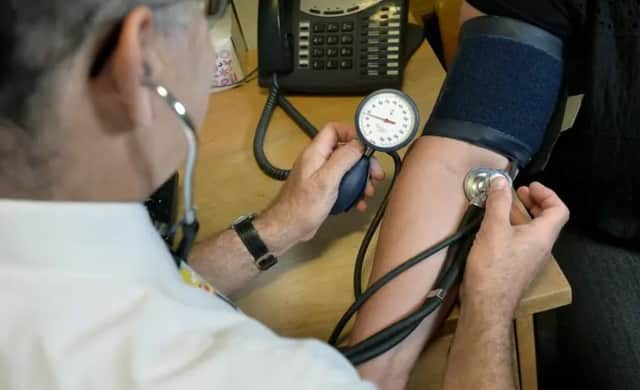How to lower cholesterol according to top GP - including eating more fish and quitting smoking
This article contains affiliate links. We may earn a small commission on items purchased through this article, but that does not affect our editorial judgement.


Cholesterol is something that most of us are always keeping an eye on.
We are constantly being told to keep our cholesterol levels low, and with good reason. High cholesterol can cause a build-up in our blood vessels which increases the risk of cardiac problems, strokes and more.
Advertisement
Hide AdAdvertisement
Hide AdChloesterol itself is a fatty substance that our bodies need to function properly, so "high" cholesterol means there is more of this fat in our bloodstream than there needs to be.
Dr Bhavini Shah, a GP from LloydsPharmacy Online Doctor, has a plethora of tips to help us get our cholesterol under control.
She said: "High cholesterol is mainly caused by having an unhealthy lifestyle. This includes eating too much fatty food, not getting enough exercise, smoking and drinking and being overweight.
"You may also be more at risk if it runs in your family. High cholesterol does not typically cause symptoms, so you can only find out if you have it from a blood test.
Advertisement
Hide AdAdvertisement
Hide Ad"Your GP may recommend a blood test to see if your cholesterol is high, particularly if you are over 40, overweight or cholesterol and heart issues run in your family."
Dr Shah added that healthy adults should have less than 5mmol/L of total cholesterol in their blood.
Below are her top tips to lower your cholesterol - before it's too late.
Choose healthy fats
"To lower your cholesterol, you should try to cut down on fatty food, particularly food that contains saturated fat. Foods high in saturated fats include red meat, sausages and pies, full-fat dairy products, and fried foods.
Advertisement
Hide AdAdvertisement
Hide Ad"Instead opt for unsaturated fats such as avocado, nuts and seeds, olive oil and oily fish like mackerel and salmon."
Eat more fish
"Fish such as salmon and mackerel contain omega-3 fatty acids which is a type of unsaturated fat that can help lower cholesterol levels.
"They do this by lowering triglycerides - a type of fat that enters your blood after eating. Some research has suggested that they can help by lowering blood pressure, preventing blood clots, improving circulation and keeping your heart rhythm steady."
Increase fibre intake
"Eat more fruits and vegetables like beans, broccoli and sweet potatoes as well as whole grains. These foods are high in fibre, which can help reduce LDL (‘bad’ cholesterol)."
Advertisement
Hide AdAdvertisement
Hide AdAvoid processed foods
"Ultra-processed foods can contain high amounts of sugar, salt and fat. Eating too much processed food can potentially increase the risk of obesity, high blood pressure and high cholesterol.
"If you want to lower your cholesterol you should avoid ultra-processed foods such as microwave and ready meals, cakes and biscuits, cereal, cheese, and bread."
Avoid cholesterol-rich foods
"Some foods, like red meats, egg yolks and whole milk are high in cholesterol. Limit your intake of these foods.
"Instead opt for foods with low-cholesterol such as oats, whole wheat bread, brown rice, and even popcorn. Additionally, fruits and berries, such as blueberries, strawberries, apples, oranges and grapes are all low-cholesterol foods."
Advertisement
Hide AdAdvertisement
Hide AdWatch portion sizes
"Be mindful of portion sizes to avoid overeating, which can contribute to weight gain and higher cholesterol levels."
Exercise regularly
"You should aim to do at least three hours of exercise per week, especially if you are trying to lower cholesterol. Try some fast paced walking, swimming or cycling if you are looking for a place to start."
Quit smoking
"Smoking damages blood vessels and lowers HDL cholesterol so quitting is beneficial for your overall health, as well as for lowering cholesterol. Smoking can increase your risk of serious problems like heart disease, stroke and cancer"
Limit alcohol
"Try to avoid drinking more than fourteen units of alcohol per week and avoid binge drinking. Drinking too much can contribute to higher cholesterol levels."
Comment Guidelines
National World encourages reader discussion on our stories. User feedback, insights and back-and-forth exchanges add a rich layer of context to reporting. Please review our Community Guidelines before commenting.
